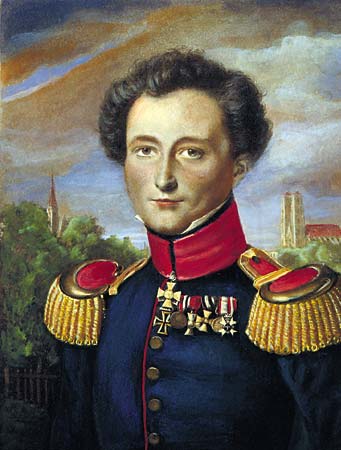The directory «Plots of stamps in the catalogue»
Clausewitz Carl Philipp Gottlieb
(1780—1831)

Prussian general and military thinker. Von Clausewitz is often seen, incorrectly, as the originator of the concept of total warfare and has been partially blamed for the increased destructiveness of recent wars. «War is merely the continuation of policy by other means,»
is perhaps his most oft-quoted and even more often missed point. It has been intepreted by some as the idea that war is only the «strong arm» of diplomacy, utilized when more peaceful means of persuasion are not sufficient; and by others, that military should only serve the politic and not end in itself. His father was an officer in the Prussian army; Carl entered at the age of 12, eventually attaining the rank of Major General. He served in the Rhine campaigns (1793–94), won the regard of Gerhard von Scharnhorst at the Berlin Military Academy, and served in the Napoleonic Wars. In the service of Russia from 1812 until 1814, he helped negotiate the convention of Tauroggen (1812), which prepared the way for the coalition of Prussia, Russia, and Great Britain against Napoleon I. He later reentered the Prussian army, played an important role at Waterloo, and was appointed director of the Prussian war college in 1818. Carl von Clausewitz is most famous for writing the military strategy book Vom Kriege (On War), first published in 1832. The book dealt with war as a whole, and has frequently and incorrectly been seen as the origin of the concept of total war. Despite his death before completing On War, his ideas have been widely influential in military theory. Later Prussian and German generals such as Helmuth Graf von Moltke were clearly influenced by Clausewitz. The idea that actual war includes "friction" which deranges, to a greater or lesser degree, all prior arrangements, has become common currency in other fields as well (e.g. business strategy).
DDR, 1980, Carl von Clausewitz
German Federal Republic, 1981, Clausewitz
German Federal Republic, 1981.11.12,  Bonn. Clausewitz
Bonn. Clausewitz